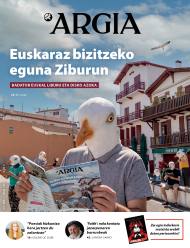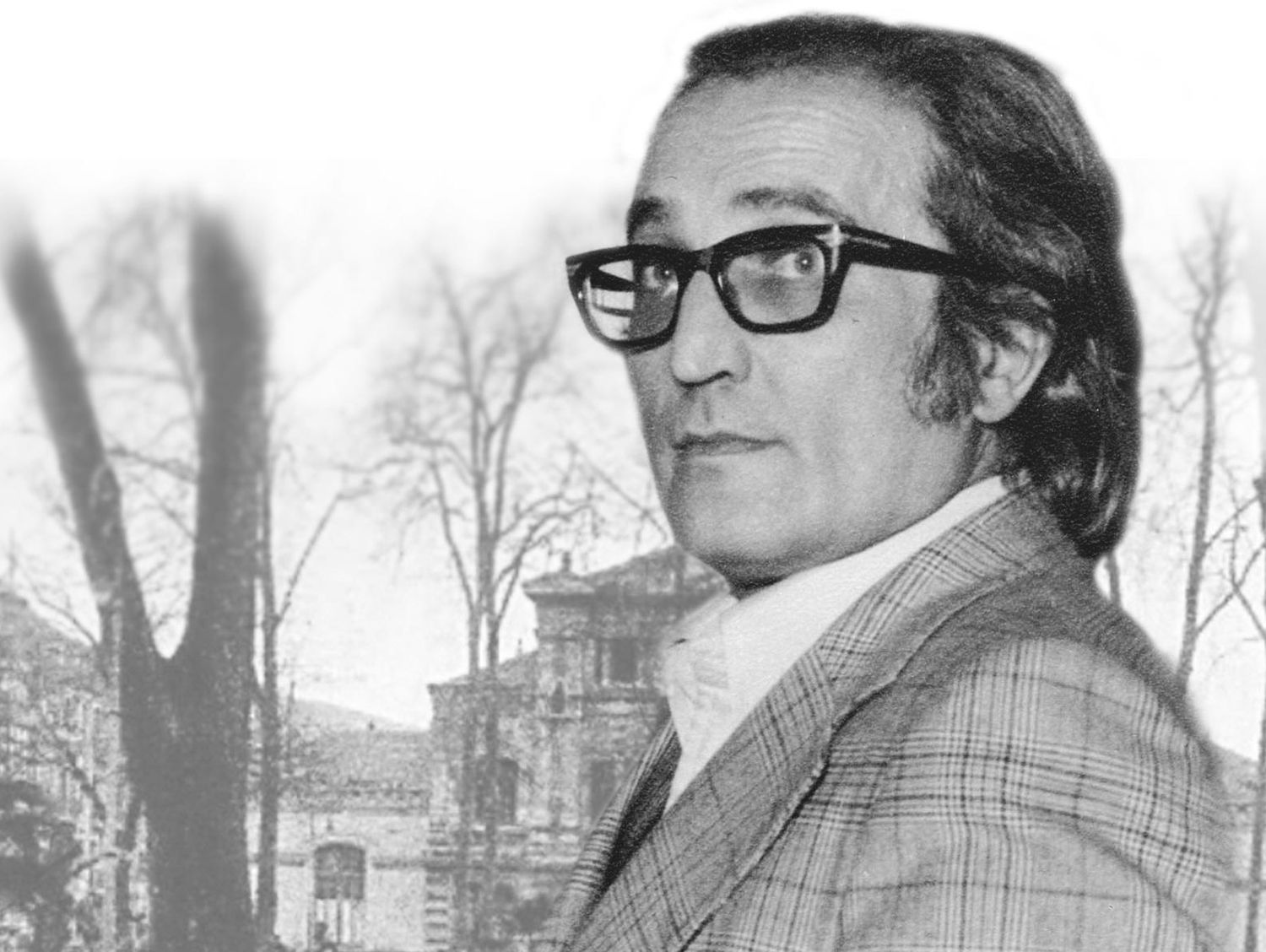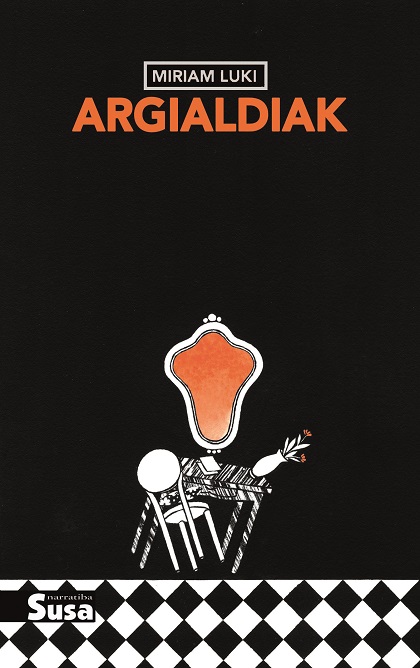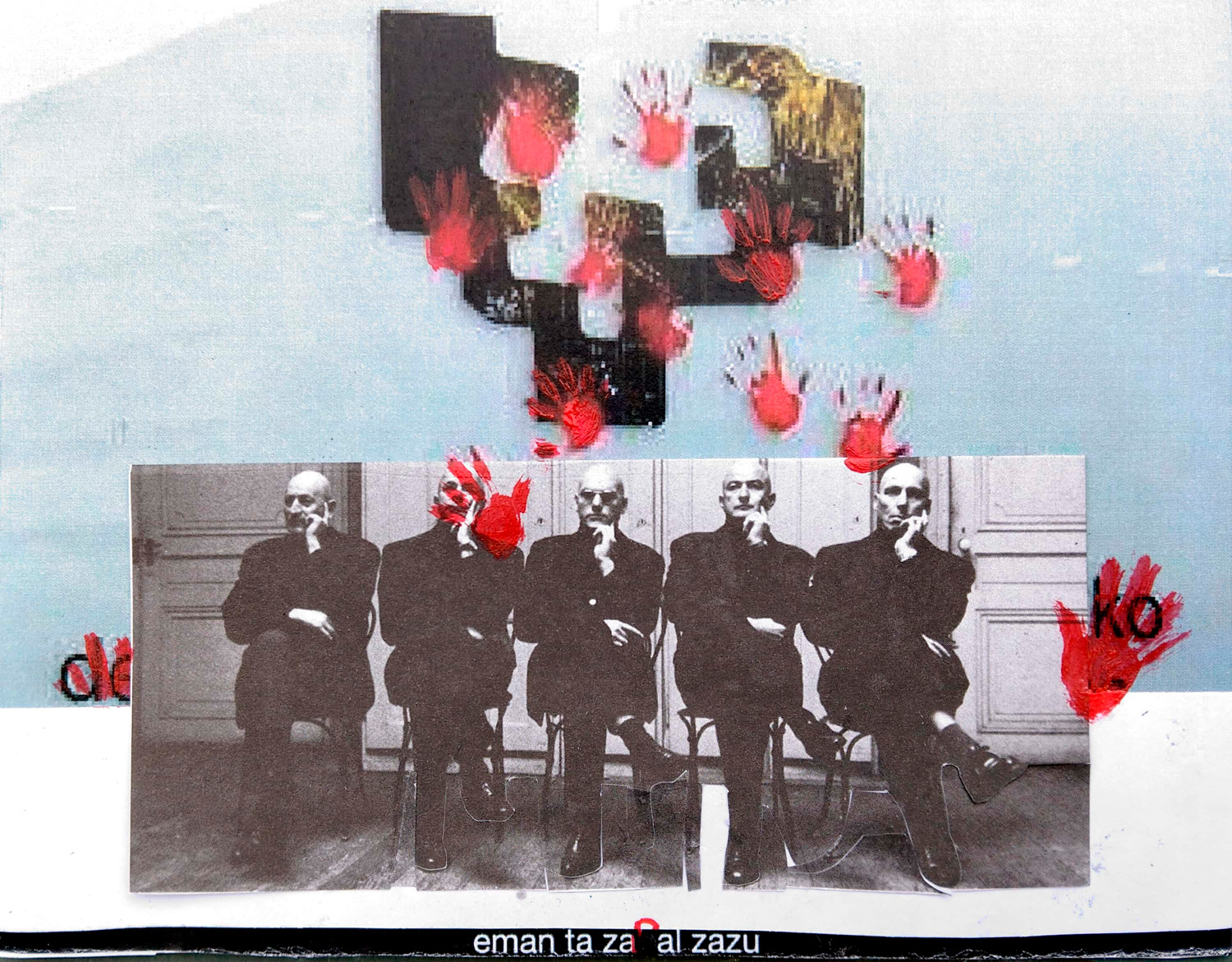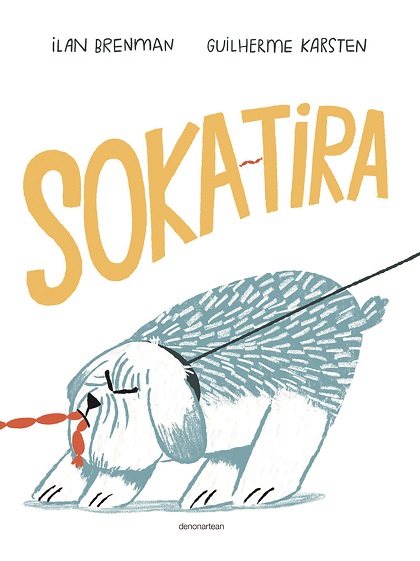"One of the most beautiful things to write is the network of relationships that young writers create between us."
- Although it seems the opposite, Iosune de Goñi states that writing is not something in isolation and defines literature as a network of spiders. It moves dexterously in poetry and social activism. It works for feminism and against training in social networks. It has clear ideas and warm heart.
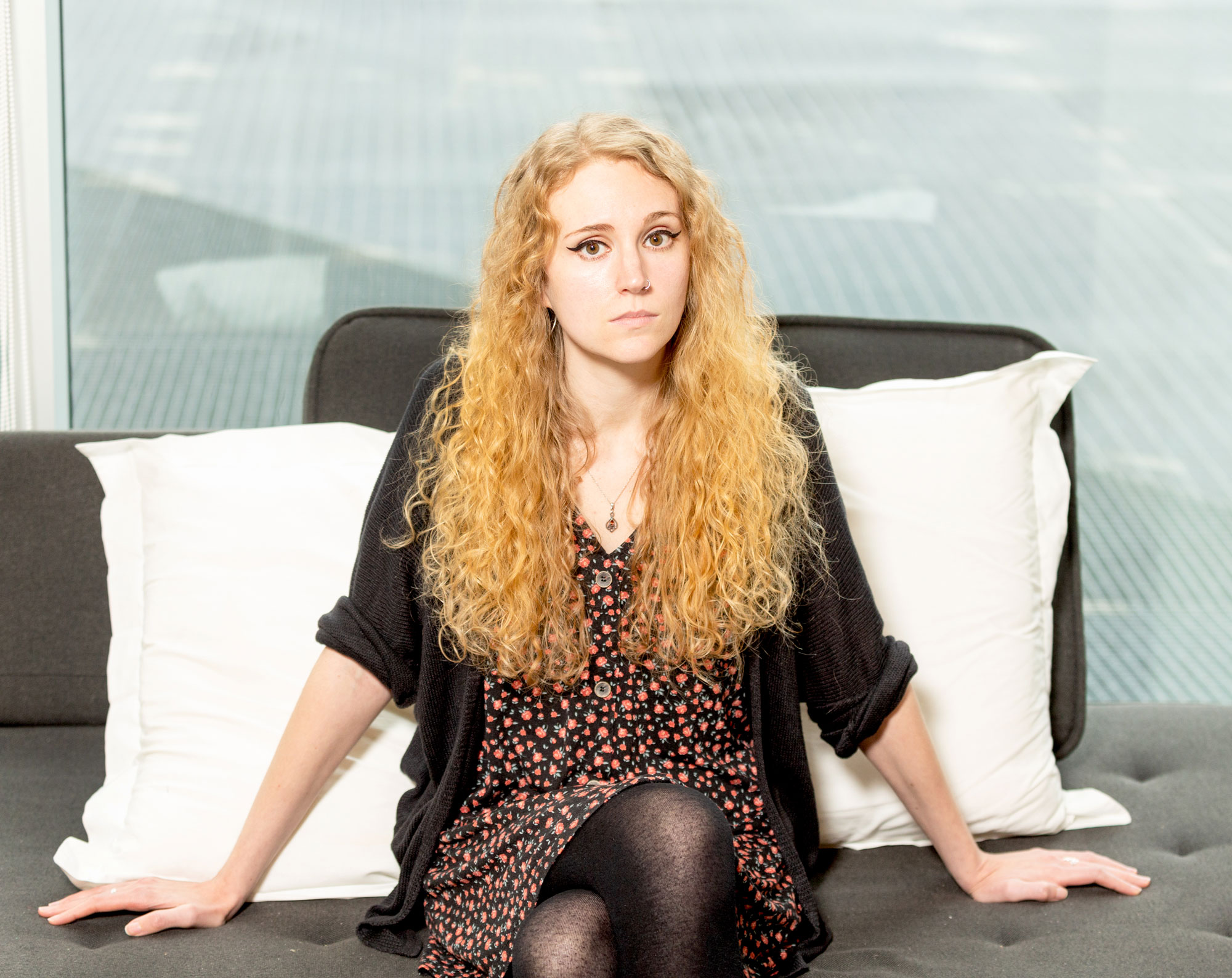
Idazlea, argazkilaria eta itzultzailea da. Feminista eta kapazitismoaren aurkako aktibista. Filosofiako Gradua amaitu ostean, Bartzelonan Literatura, Artea eta Pentsamenduari buruzko Ikasketa konparatuen gradu-ondokoa egin zuen. Hilda Doolittle idazleari buruzko tesia egiten hasita, osasun arrazoiengatik utzi behar izan zuen. Egun Ingeles Ikasketetako Gradua amaitzen ari da eta itzultzaile gisa egiten du lan. 2020an Trenza roja fanzinea argitaratu zuen Inés Martínez idazlearekin batera. 2021ean Pasaia Hiria-Xabier Portugal poesia saria irabazi zuen Gorputz baten aztarnak elurretan poema bildumarekin. Iruñeko Udalaren Egile Berrientzako Literatur Lehiaketan ere lehen saria irabazi berri du Itzalak uraren azpian lanarekin. Liberoamerika argitaletxeko editorea da, Ane Zubeldiarekin batera.
What relationship do you observe between photos and words?The
language of literature and photography is different, but both allow us to see and understand the world differently. I'm often told that my poems are very visual, or that in my photos you can find the footprint of poetry, and I think in my case they have a lot of interaction. I immersed myself in photography to get away from literature because I wanted to go beyond the limits of words. But eventually they both got together. I think I'm looking for the same thing in both, that I use similar metaphors.
Both met mostly in his first book, Fanzine Red Braid. How did the idea come about?
I founded it with writer and journalist Red Brenza Inés Martínez. When we were 15, we started reading and writing their blog. We didn't know why he was from Madrid and I from Burlada, but we created a virtual literary relationship. In 2017, I decided to create a project on the disease, and I asked people on Facebook to release the creations related to this issue. At that point, I started talking to Inés, and together we decided to create a fanzine. The book was finally published at the end of 2020. It deals with issues like body, disease and pain, but also friendship, care and recognition. We wanted to show that you can love the sick body, and that sometimes you can find shelter and light, that we are not alone, that there are many people like us.
For many people it is strange to talk about the
disease… Reading the literature written initially by women was also rare for many people. Until recently, we were used to reading only books written by white men, and when we started writing women, it was said that this was female literature and not universal.
There are more people near the disease than we think. I believe this issue is not much discussed, but it is very present, even more so with the situation caused by the pandemic. It is important to reflect on this even if it is not to your liking. Talking about disease reminds us of our vulnerability and that sooner or later we will also become ill and die. Maybe that's why we don't want to see, we don't want to talk about it, and we marginalize people with chronic diseases, or we ignore them every time they talk about it.
Is there also a gender gap in disease?
Yes, of course. I had a very bad time until I got the diagnosis because I suffered a lot of medical violence, especially because I was a woman and a young man. I guess the same will happen in us with a non-hegemonic race or with people with different sexual identities and orientations. Many studies show that women don't do the same when we go to the consultation. Many times without doing tests, they tell you that what you have is psychological or you are saying, they consider you hysterical... It is more difficult for women to get a diagnosis, especially when it comes to a rare or chronic disease, and less money is allocated to research the diseases we suffer. There's a lot to change in medicine.
In Pandemic have we learned anything about disease as a society?
I am not very clear. When the pandemic came, I was barely leaving home because I was very ill. Before the confinement there were many patients confined, totally outside society, without the possibility of participating in the public world. When the pandemic came, suddenly everything became accessible, all the options that had denied us until then became possible.
I could see concerts, conferences, go to museums virtually. Learn from home, work from home. I think these options are now disappearing, so I don't know if we've learned anything, because going back to normal means that those of us behind us have to stay back. However, I think it's COVID-19 and now we see the disease closer, and in the world of literature is spelled out more and more on the subject, but we have a lot left to see the other, especially when it's excluded, when we make it invisible.
.jpg)
"Before the lockdown there were many patients confined and when the pandemic came all became accessible"
It's important for you to weave networks between poets. Why?
We always think literature is written in isolation, but it's not true. A text always comes from somewhere, behind there are other voices and then there will be others. It's an echo. I've always written with someone. When I was growing up, I started inventing stories with my mother, and then I wrote on a young man's blog and read daily what others of my age wrote. This is the Spanish literature. It's been different in Euskera, because in Euskal Herria, there hasn't been that fashion of blogs. When I was 18, I won the Urruzuno Literary Contest and the prize was a trip with other writers. From there came another network, and today I have relationships with many writers that I met there. From Elkarlan, Red Braid also emerged, and I am currently working with illustrator Cristina Jiménez in preparing the exhibition that will open shortly. I have recited several times with the writer and musician Leire Alonso doing a viola and a poetry…
One of the most beautiful things about writing is the network of relationships that young writers create between us. As I said, I am in contact with many writers and creators, both personally and virtually. We talked about literature and life, wrote letters or poems and shared some projects. I don't know if I would keep writing if it wasn't for that network. Literature is a web of spiders. Let's knit the strings together.
Youth and poetry are always very united. Is it because it blurs feelings?
Yes, I would say it's the genre that we most work with young writers, and many authors who then write narrative start with poetry as well. I don't know if it's because of the importance it gives to feelings, because there are many poems that are not emotional. I think it is a matter of length. We live faster and faster, we have no leisure time, and writing requires time and tranquillity. Writing a poem does not take enough time to write a novel. It can also be a matter of style: poetry makes it possible to say things differently, questioning language itself, and I believe that new generations need a new language. In this sense, poetry is more flexible, it opens up more possibilities.
Do you notice a significant change in pace and time?
Yes, in recent years the rhythm of life has changed a lot and a great generational difference is perceived. We live much faster. I think we have a huge sensory overload, which we live bombarded by stimuli. It's also a question of capitalism. We must be productive, be everywhere, do lots of things. It causes enormous stress and to create we need inaction, a vacuum, a space to think and a time.
Liberoamerica is another interesting network. What is it about?
Liberoamérica is an initiative that was born in 2017 with the objective of publishing and disseminating the works of young writers from Latin America and the Iberian Peninsula.
Today we have groups of publications in Argentina and Euskal Herria, along with a virtual journal that brings together writers from all countries. The first work we published in Euskal Herria in 2020, reflected in the Ice. Collection of young Basque writers, and now, in 2022, I hurt you by Barrengo. We just published the book "8 coastal voices." The book includes works by four Latin American writers translated into Basque by four translators.
Are the literature here and there very different?
I would say that the way of writing is different. The poetry written in Euskal Herria is more direct, clearer, perhaps also more political. The Argentine, on the contrary, is more complicated, with more metaphors and longer phrases... They're different ways of seeing or describing the world. However, there is everything, as you can see in the book Barreneko zulatzen zaitut.
And what does mythology give you?
I've been very fond of mythology since I was a kid. When I was 15 years old, my aunt took me to Egypt because I was obsessed with antiquity, and today it's a subject that interests me a lot. I have also studied academically the final master's and doctoral work I did on the work of writer Hilda Doolittle, analyzing the relationship between feminism and mythology. Most of the myths and legends that have come to us have been reported from the point of view of white, qualified, heterosexual and upper-class men, and I think it is necessary to review these narratives and even invent new myths. Mythology is also a very interesting tool in poetry, because in short, it's a metaphor for talking about our life, a way of saying things differently.
.jpg)
"Thinking about collectivity and accepting diversity can be what we can learn from nature."
What do you think about matriarchy?
Some researchers claim that in the time before the arrival of the Indo-Europeans, rather than matriarchy, it was a society based on equality, where weapons and war did not exist. Sometimes this society is very idealized, but I find it very interesting that there has been such a time or, at least, that the idea is there, because that means that we can reimagine or build something similar. This idea had a great influence on the work of Hilda Doolittle and other writers of his time, and it has also appeared in some of my poems.
The footprints of a body in the snow, he dedicated his first poetry book to Jacqueline Winter Thomas. Who was Jacqueline?
Jacqueline was an American writer who died in 2019 at the age of 28. He wrote mainly poetry, articles and diaries, and taught poetry and critical theory classes at university. I too have moved between philosophy and poetry, and with it I felt very identified. We had the same interests, we read the same books, and I really liked what I wrote and shared. I felt like I was an unknown sister who lived across the world. When he died, it was hard not to share that pain with anyone, because I hadn't talked to anyone from Jacqueline. It seemed to me that I had no right to be wrong, because we didn't know each other. Eventually I decided to write about him to keep his memory and his work alive. To do so, I tried to bring together everything he wrote, although it was complicated. From there was born the remains of a body in the snow. I would say it is an interview, a conversation between two poetic voices, a reflection on the death and inability of language.
And Shadows underwater tells you about award-winning work.
I wrote it last fall, when I came back from a trip to Greece. It's written as a journal, but the experiences described are part of the past, they've become memories. Therefore, underwater shadows are an exercise of memory in which past, present and sometimes future mix. I made the trip with my partner, and when we were in Greece, we talked about underwater waste over and over again. When I came back, it was clear that I wanted to write a paper on the journey and that I wanted to use the life of the seabed or destruction as the main metaphor. In addition, during the trip we carried with us a book by Hilda Doolittle, who wrote a lot about Greece, which is also reflected in my work. This time I also form a new interview, incorporating in my poems phrases and quotes from Hilda Doolittle.
* * * * * * *
LAST WORD
Nature
“Nature is always present in my poems. Nature teaches us to follow another pace and see what is really important. In it there is a whole that gathers things in their diversity. All the elements and beings are connected to each other, forming a network, and I think in this capitalist and individualistic society that is forgotten many times. Maybe thinking about collectivity and accepting diversity is what we can learn from nature. For example, feminism can learn that there are many ways of being a woman. I think all social movements should take nature into account.”
Lighting
Miriam Luki
Susa, 2023
-------------------------------------------------
You never know what you're going to find when the course starts, the first of September is always times of high tension, from three to forty years. High motivation time, time to enroll in the language school and in the gym. This year I'll also make ceramics, it's always been my... [+]
Translations
Miren Agur Meabe
Elkar, 2023
--------------------------------------------
Last year, Miren Agur Meabe published the novel Itzulerak. As the main characters are young people, we could say that it is juvenile literature, but when literature is good, it is for... [+]
Saran egingo da urriaren 11 eta 12an, eta aurtengoa laugarren edizioa izango da.
Text:
Ilan Brenman
Illustrations: Guilherme Karsten
translation: In Alkain
Denonartean, 2024
-------------------------------------------------
At the end of this album is a quote from Benjamin Franklin: “There has never been a good war, nor a bad peace.” And... [+]
Chill is abandoned by the Mafia, killed for success. Like an era kills the previous one. If we put the pandemic at the birth of Kristro, Chill Mafia would be the most important event after the Pandemic. They knew how to take P.A.koa and made him explode inside, they left no one... [+]
Pozo
Goiatz Labandibar
Erein, 2024
----------------------------------------------------------
The Pozo de Goiatz Labandibarren is a growth novel that takes place one day: the descent of menstruation. Or in other words, a hero's journey, why not.
As often happens in this... [+]
It is well known that some French companies (Thales, Airbus, Dassault) have long been helping Israel complete its military equipment. According to a survey by the Disclose Association, the French Government has supplied electronic components to Israel, in order to use drones to... [+]
When we were children, we cried because of the death of the sun, because we understood that the earth would ever die. So, injustice was the only anomaly in this world and was inexplicable in the lives of these adults. All the cartoons said, "Everything is going to be OK," and I... [+]
Sorry as if there were no
Mariana Travacio
Erein, 2024
---------------------------------------------------
Although the title may seem like a self-help book, this is a Western text that Erein has published in the narrative section. In the excellent translation of... [+]









